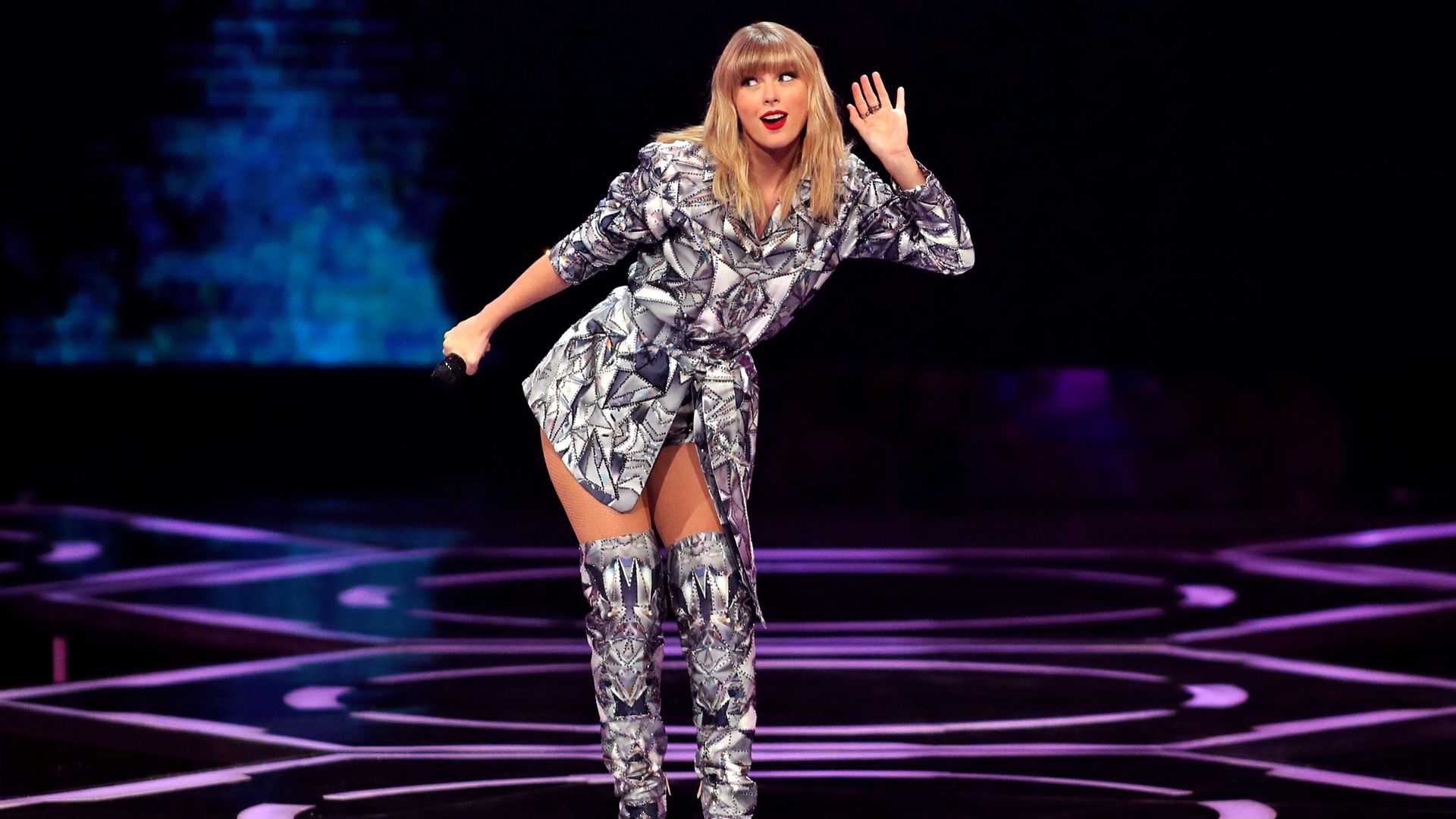
Taylor Swift still can't shake off the sale of her former record label, nor the private equity firm that enabled it.
Background: Ithaca, a media holding company led by Scooter Braun, in June acquired Big Machine, which had released all of Swift's albums up until that point.
- The $300 million deal was partially financed by the Carlyle Group, which already was a minority investor in Ithaca.
- Swift claimed to have been blindsided by the deal (there's some dispute on that) and later pledged to re-record her back-catalog once contractually able in late 2020.
What's new: Swift last night claimed that Ithaca is prohibiting her from performing some of her old songs on the upcoming American Music Awards, unless she agrees not to independently re-record her old material. She also says the old music ban extends to a Netflix documentary about Swift, and that she'd need to stop publicly discussing Braun and Big Machine boss Scott Borchetta.
- Big Machine claimed, in a reply, that it's shocked by this "false information," adding that it's been in negotiations with Swift's lawyers over "millions of dollars and multiple assets [owed] to our company, which is responsible for 120 hardworking employees who helped build her career."
- It also claimed that it didn't block Netflix from using old songs, and that it does "not have the right to keep her from performing live anywhere."
- Big Machine doesn't address what songs Swift can perform live — which seems to be the nub of her argument — nor if it's conditioned permissions on her pledging not to re-record.
- The Carlyle Group isn't making public comments, likely because it remains only a minority investor. Braun didn't return an interview request.
The bottom line: No matter whose side you're on, it's now clear that Ithaca, Carlyle and Big Machine didn't do enough pre-deal work. Even if your most important asset has already walked out the door, it's worth getting her to sign-off so that she doesn't become a major liability.
Go deeper:







